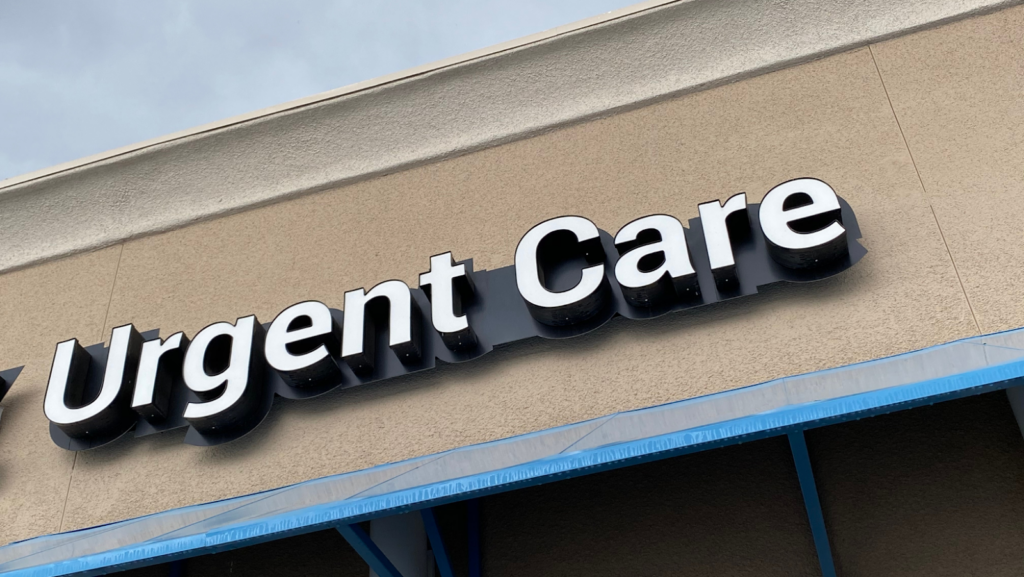When it comes to our little ones, every cough, sneeze, or tumble can send a wave of worry through a parent’s heart. That’s where the concept of ‘urgent care baby’ steps in, providing immediate medical attention for non-life-threatening situations.
So, let’s navigate this crucial aspect of parenting together, ensuring our bundles of joy remain safe and sound.
Urgent Care for Babies

Urgent care, as a medical discipline, offers immediate treatment for injuries or illnesses that aren’t life-threatening but require prompt attention. When it concerns babies, the sphere becomes more nuanced. It’s essential for parents to know when and how to use these medical services.
Typically, urgent care centers for babies offer healthcare services beyond the regular office hours of pediatricians. These centers operate during weekends, holidays, and nightly hours. They serve as an excellent bridge between your child’s routine healthcare provider and emergency room services, particularly when normal clinics are closed, and immediate care is a necessity.
Common illnesses, such as ear and eye infections, vomiting, diarrhea, mild asthma, and allergy reactions, fall under the umbrella of conditions that urgent care clinics treat. They also handle minor injuries like cuts, minor burns, sprains, or bone fractures.
Common Reasons for Baby’s Urgent Care Visits
Among the plethora of reasons that call for a baby’s urgent care visit, key instances stand out. These major instances form the primary reasons why parents bring their babies to an urgent care center.
Ear Infections generally showcase symptoms like excessive crying, trouble sleeping, or tugging at the ear. Statistics state that five out of six children will have at least one ear infection by their third birthday.
In the event of Cold and flu-like symptoms persisting beyond a week, or if they grow severe, urgent care is imperative. According to the CDC, children younger than 5, particularly those younger than 2, are at high risk of severe flu-related complications.
How to Prepare for Your Baby’s Urgent Care Visit

Preparing for your baby’s urgent care visit differs from routine check-ups. Quick and efficient preparation goes a long way in helping healthcare professionals provide effective care promptly.
One: Pack essentials. Include items like your baby’s diaper bag, a change of clothes, pacifiers, or a favorite toy. These items, although small, can make a significant difference in comforting your little one during the visit.
Two: Keep health records at hand. Bring copies of your baby’s health insurance card, immunization records, and a list of any medications currently being taken along with you.
Three: Reach out to your pediatrician. If possible, notify your regular pediatrician about your visit to the urgent care center. This facilitates communication between the urgent care provider and the baby’s primary doctor, ensuring continuity of care.
Four: Be ready for wait times. Urgent care visits might come with short waiting periods. While some centers provide estimated wait times, it’s best to be prepared with items that can entertain the baby during the wait.
Ensuring Your Baby’s Comfort at Urgent Care
To ensure your baby’s comfort at urgent care, preparation proves pivotal. Consider bringing familiar objects to create a comforting environment for your baby. A blanket, stuffed toy, or favorite book provides reassurance amidst the unfamiliar surroundings.
More importantly, dress your baby in easy-to-remove clothing. Examinations often necessitate clothing changes, so pick onesies or other designs that are easy to handle. Layers work best, providing warmth in typically chilly medical establishments.
Never ignore the importance of feeding and hydration. Pack milk, formula, snacks, or baby food if your child has started on solids. Dehydration leads to uncomfortable experiences, particularly if the visit lasts longer.
Must Know
Urgent care baby services have emerged as a critical healthcare option for non-life-threatening conditions. They bridge the gap when your regular pediatrician’s office is closed, providing timely care for common issues like ear infections, minor injuries, cold symptoms, and dehydration. Preparation is key for a smooth urgent care visit. Pack essentials, have health records ready, and brace for possible wait times.
